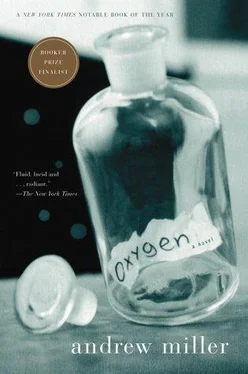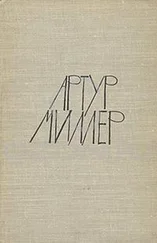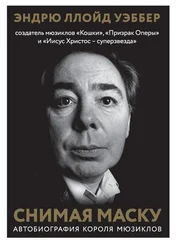The moment László set out for his meeting with Emil Bexheti he felt a constriction of the chest, as if on the previous evening he had smoked an entire tin of Havanitos rather than his customary two. The Paris air seemed thin and innutritious. It was like breathing through a straw and it began to worry him. He wondered whether it was the beginning of something.
In the science room of his old school, dissected organs, human and animal, had been preserved in sealed bottles for the instruction of the pupils. He was sure there had been a lung there, floating in its syrup, an object that looked to have grown on the side of a tree or on a submerged rock, and which even as a young boy he had found improbable as the organ that funded human speech and laughter. And from that same schoolroom, he could recall certain mysterious and exotic terms – alveoli, pleura, gaseous exchange – that meant almost nothing to him now. It was shameful that he had so little idea of what took place in the world beneath his skin, though it seemed inevitable that in the next ten or fifteen years he would undergo some manner of enforced education. He knew, for example, that the heart was chambered like a weapon, but were there two or three chambers? Four? Was the body entirely dark inside? Was there colour?
He paused outside the Air France offices on rue de Rennes, leaning forward a little in a posture that seemed to ease the intake of air. Don’t let me be old today, he thought. Today he needed clarity and vigour, a will unsapped by any thoughts of mortality, and he turned his mind once more to the meeting, and to the note he carried, which yesterday morning, or the night before, had been slipped in among his papers at the university. A single sheet of A4 in a brown envelope. Unaddressed, unsigned.
‘The café terrace at the Monde Arabe. Wednesday 1600.’
His first reaction had been to drop it into the wire tray on his desk – both his ‘in’ and his ‘out’ tray – where he collected all those matters he did not intend to look at for a very long time. There was work to do. His Hrabal lecture, a dozen postgraduate essays to wade through. But several times during the next hour he had reached for the note and examined it as if the message, which could hardly have been more blunt, more laconic, were somehow encrypted. Finally, with a grunt of impatience, he had screwed it into a ball and lobbed it into the waste basket on the other side of the room, only to fish it out a few minutes later, carefully fold it, and put it in his wallet next to the photograph of himself holding his mother’s hand outside the old house on Szechnyi Rakpart.
Back at the apartment – it was Kurt’s yoga night – he had held the note under the lamp in the study. He had, of course, been expecting something of the kind since the call the night of the dinner, but now that it had come he felt suddenly and unreasonably implicated, as if he had agreed to it all, even solicited it. He decided to destroy the note by tearing it into pieces so small it could not possibly be reconstructed (by whom? Kurt? The Garbargs, fingering the communal rubbish?). Alternatively, it might be wiser, more complete, to burn it in an ashtray, or even to flush it away in the toilet, though in the first case there would be the lingering odour of paper smoke, and in the second, he risked the reappearance of scraps of paper from the mysteries of the U-bend. The plumbing of the Fifth Republic – or in the case of his own toilet, possibly the Fourth – was good but far from perfect.
He had paced about the study, laughed at himself, read a paragraph from the previous days Libération (Kurt kept all the papers for recycling), then flicked through a dozen pages from the last draft of his latest work-in-progress, L’un ou l'autre. To be absolutely safe he resolved to throw the note away in a street bin a good distance from the apartment. People threw things away all the time. There could be nothing remotely suspicious about it.
He spent that evening with Laurence Wylie in a bar on the boulevard Ménilmontant, the same bar in which Franklin had acquired the gun from the policeman. She had quite obviously been drinking at home before coming out, and it did not take more than a glass of Ricard before she began to repeat herself. Franklin had not been keeping his appointments with the doctor. Franklin was mysteriously sick in the night. Franklin made ‘jokes’ about killing himself. Most recently there had been a row with the gardienne, Madame Barbossa, whom Franklin had accused of snooping. She probably was, said László. Snooping was part of her job. But Franklin had made the poor woman weep by calling her a ‘ collabo! ’ This to a woman whose father had died heroically in the street fighting of August ’44, saving his comrades, saving France. Naturally the neighbours had become involved. It was a miracle the police had not been called. László agreed it was a mess, a tangle, and had promised that he would have another talk with Franklin, though he drew the line at Laurence’s suggestion that he also talk to Franklin’s doctor, a German of indeterminate sexuality whose waiting room was always full of painters and novelists and dancers with their STDs, their imaginary brain tumours.
At midnight he walked her home to the rue du Deguerry, hugged her in lieu of any more substantial consolation, then caught the Metro from Parmentier. There were bins in the Metro station, bins on the street, but the note had remained in his wallet. He could not quite understand it, this sudden blossoming of the neurotic. Was it some old reflex of secrecy? After all, he had grown up with Rákosi and the ÁVH, where it was taken for granted that there were informers everywhere. But he had lived in France for forty years! Was it possible that the old instincts were so easily provoked? He was not convinced, and as he took the cage elevator up to his apartment, it struck him that he was acting like a man who had decided upon a course of action he could not yet justify to himself, as though reason – or what passed for it, those little narratives of self-justification – were loping behind his true intentions like an idiot.
Kurt was at home, standing in the kitchen in his underwear eating a slice of bread and honey. He demonstrated a new contortion from the yoga class. László passed on the story of Franklin and the gardienne which, in the retelling, lost its character of melodrama and seemed merely comic. They sat up a while, then retired to the bedroom and went through the preliminaries of love-making, but after twenty minutes, such was the laming effect of his secret, László, lying over Kurt’s back like the last survivor of a disastrous cavalry charge, was forced to admit defeat.
‘Too much wine,’ he said. ‘Sorry.’
‘Sleep,’ said Kurt, good-humouredly. They were old lovers now and failure was part of the repertoire. This was Tuesday night.
On the Wednesday afternoon, having decided he would walk to the Monde Arabe, László chose to come up the rue de Rennes on to the boulevard St Germain, rather than cut through by the Panthéon and run the risk of encountering colleagues from the university. At three-thirty the day was hot, the cafés crowded with gleeful Americans. Backpackers stared at maps, and outside the St Germain Métro the hurdy-gurdy man ground out sentimental tunes while his little dog slumbered in its basket. Walking, László rehearsed his speech to Emil Bexheti, which he would be at pains to ensure was neither too indulgent, nor overly stern. I am a playwright, my friend, and my function is to observe, and then to write as honestly as I can. That is all. Naturally I sympathize with your cause. But seriously, what do you expect of me? If it’s a matter of signing a petition, or even perhaps of writing to a newspaper, these things I am prepared to consider, though you should not overestimate my influence. Above all, do not ask me to meddle in other people’s business. Such actions, however well intended, end badly…
Читать дальше












